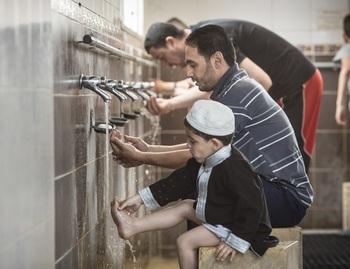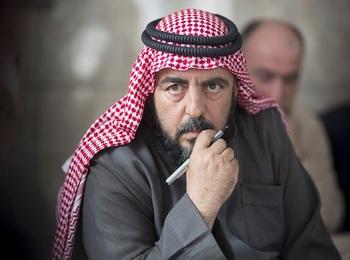Approach
The project team works with the Jordanian Ministry of Water and Irrigation and the Ministry of Awqaf Islamic Affairs to encourage the population to use water responsibly by tapping into their religious value systems and beliefs.
The project team develops information and teaching materials on resource and water protection with religious leaders and education experts. Partners use these documents to train imams and waithat – male and female religious scholars – so that they can serve as water ambassadors teaching believers in communities how to use water economically and why this is important. Dedicated teaching materials have also been developed for Christian leaders.
Religion-based teaching materials are developed for schools and universities and then included in religious education to raise awareness of the issue of water scarcity.
In addition to religious instruction, the project also uses mass media to address the importance of conserving water and resources and raise public awareness through people’s beliefs.
Project partners are equipping selected mosques in northern and central Jordan with rainwater collection and grey water recycling systems. Theses water saving Blue mosques will show people ways of saving water that they can also put into practice in their own homes.
The more economical use of water and natural resources achieved by the project will also reduce tensions between the host Jordanian population and Syrian refugees.
The project is part of a special initiative designed to stabilise and promote development in North Africa and the Middle East run by Germany’s Federal Ministry for Economic Cooperation and Development (BMZ). Through the projects that make up this special initiative, BMZ is helping to open up economic and social prospects for people in the region.
Results
More than 2,500 religious leaders have been trained on resource and water protection until now.
The message of water saving has reached local communities: 22 per cent of those who regularly visit mosques say they have heard something about water saving measures while attending a mosque. This is a raise of 14 percentage points compared to the beginning of the project. Of those who have heard something about water shortage in a religious gathering, 25 per cent say they changed their behaviour after hearing about it.
In addition, 92 per cent of local communities now consider wasting water to be unethical – an increase of 18 percentage points.
At the beginning of the project a majority of 60 per cent of respondents believed that they can do what they want with the water they receive, this has melted down to only 29 per cent. This shows that water is not seen as a commodity but that water usage comes with ethical obligations.
According to the same survey, water saving behaviour increased by more than 15 percentage points with a particular increase among Syrian refugees.

